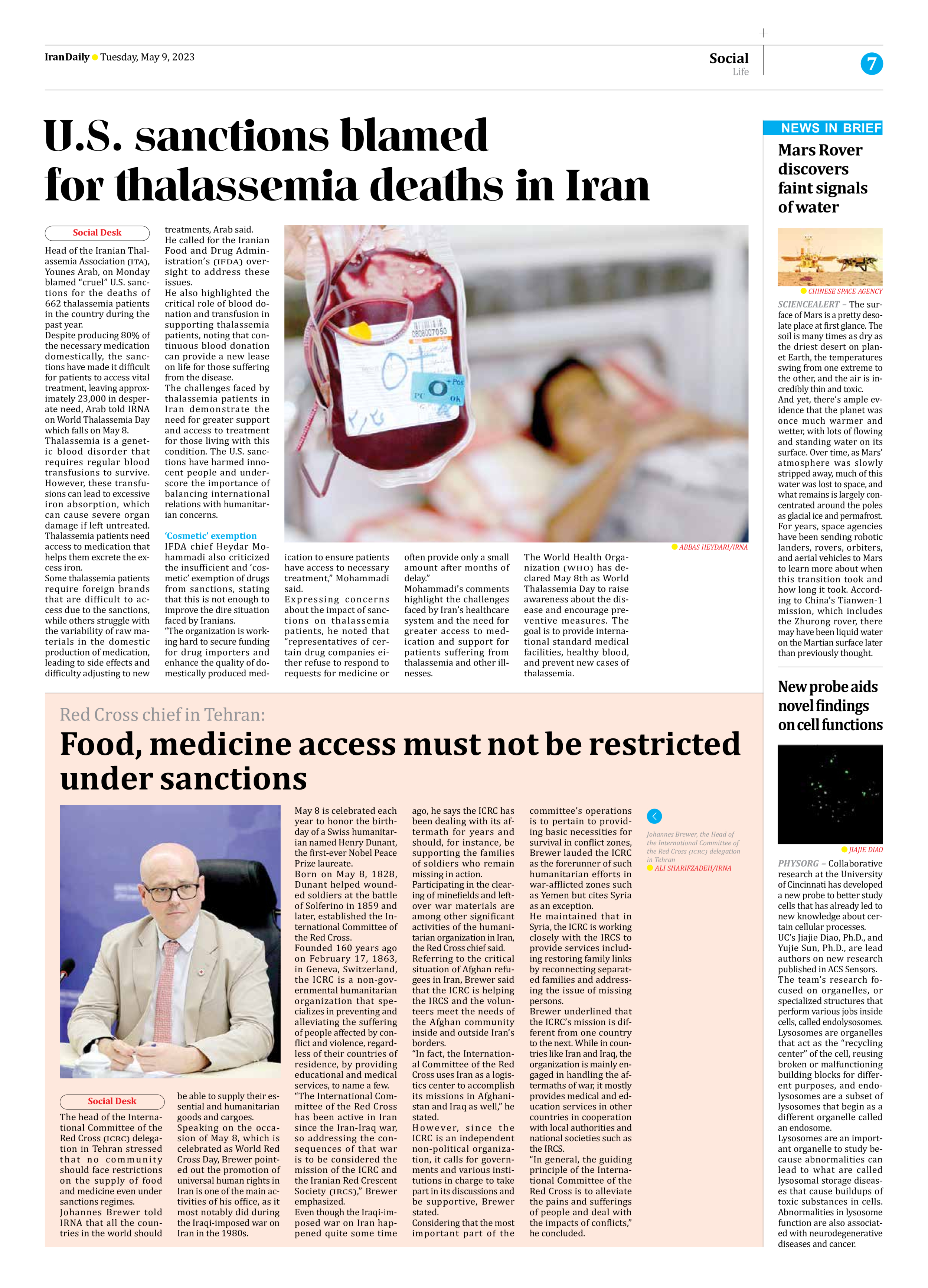
U.S. sanctions blamed for thalassemia deaths in Iran
Head of the Iranian Thalassemia Association (ITA), Younes Arab, on Monday blamed “cruel” U.S. sanctions for the deaths of 662 thalassemia patients in the country during the past year.
Despite producing 80% of the necessary medication domestically, the sanctions have made it difficult for patients to access vital treatment, leaving approximately 23,000 in desperate need, Arab told IRNA on World Thalassemia Day which falls on May 8.
Thalassemia is a genetic blood disorder that requires regular blood transfusions to survive. However, these transfusions can lead to excessive iron absorption, which can cause severe organ damage if left untreated. Thalassemia patients need access to medication that helps them excrete the excess iron.
Some thalassemia patients require foreign brands that are difficult to access due to the sanctions, while others struggle with the variability of raw materials in the domestic production of medication, leading to side effects and difficulty adjusting to new treatments, Arab said.
He called for the Iranian Food and Drug Administration’s (IFDA) oversight to address these issues.
He also highlighted the critical role of blood donation and transfusion in supporting thalassemia patients, noting that continuous blood donation can provide a new lease on life for those suffering from the disease.
The challenges faced by thalassemia patients in Iran demonstrate the need for greater support and access to treatment for those living with this condition. The U.S. sanctions have harmed innocent people and underscore the importance of balancing international relations with humanitarian concerns.
‘Cosmetic’ exemption
IFDA chief Heydar Mohammadi also criticized the insufficient and ‘cosmetic’ exemption of drugs from sanctions, stating that this is not enough to improve the dire situation faced by Iranians.
“The organization is working hard to secure funding for drug importers and enhance the quality of domestically produced medication to ensure patients have access to necessary treatment,” Mohammadi said.
Expressing concerns about the impact of sanctions on thalassemia patients, he noted that “representatives of certain drug companies either refuse to respond to requests for medicine or often provide only a small amount after months of delay.”
Mohammadi’s comments highlight the challenges faced by Iran’s healthcare system and the need for greater access to medication and support for patients suffering from thalassemia and other illnesses.
The World Health Organization (WHO) has declared May 8th as World Thalassemia Day to raise awareness about the disease and encourage preventive measures. The goal is to provide international standard medical facilities, healthy blood, and prevent new cases of thalassemia.







